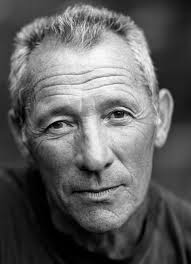 |
| Israel Horovitz |
Poet, Playwright,Israel Horovitz: Nurtured by a father of choice, not chance.
Interview with Doug Holder
Israel Horovitz, the noted playwright, screenwriter, and director of a new major motion picture : My Old Lady, (Based on his play of the same name) told me at an interview at the television studios at Endicott College, that we have our fathers of chance, and our fathers of choice. His father of choice was the renowned playwright and poet Samuel Beckett, who he met in Paris as a young man. Horovitz, at age 75 has released a first book of poetry Heaven and other Poems, that might not have been birthed if it wasn't for the influence of Beckett. I had the pleasure of talking with Horovitz about his long and fascinating career in the theater, and his distinguished experience with the arts. This interview was a special production for my Somerville Community Access TV show Poet to Poet: Writer to Writer.
Douglas Holder: Like Samuel Beckett, who you were friends
with in Paris--you are a playwright and a poet. What elements of play writing do
you bring into your poetry? Does your plays and poetry inform each other?
Israel Horovitz: I don't know. I really haven't given that
any thought. I have been writing poetry all my life... starting in my teens. I
never had any notion of publishing poetry whatsoever. My poetry was
completely private. The poetry was simply for me. When it came time to publish I had a
helluva time—because I had written tons of poems in notebooks that were long
forgotten. I sifted through them and came up with 100 poems. I didn’t go to the
publisher and say: “ Hey…publish me.” The publisher of Three Rooms Press, Peter Carlaftes was
at a poetry reading I was featured in, and came up to ask me if he could publish
my work. I hadn’t been published in poetry magazine previous to this. I would have to wanted it. I worked a long time to pick out the poems and I hired an assistant who is
very poetry friendly.
But back to Beckett. Beckett was 40 years my senior. I was a
kid in my 20s, and I wrote a play that was to be presented at the Spoleto
Festival in Italy. I was with Al Pacino, Jill Clayburgh—we were absolutely
unknown at the time. We were there to perform my play The Indian Wants the Bronx. Someone came up to me at that time and
asked me if I wanted to meet Samuel Beckett. It was 1968, I was 27 years old
with hair down to my shoulders. Around the same time a French kid ,who was a stage
manager for an Edward Albee production, said he would like to translate my
work. So since then, I have been back and forth to Paris, overseeing my plays,
etc.. But when I first met Beckett—I realized that he didn’t have kids, so that must
have played some role in our relationship. We stayed together talking for 3
hours. At the end of the three hours I said: “ Do you think that we could be
friends?” He said “ I think we are, boy.” A play of mine Line has played in New York for 40 years, in Paris for 11years, and it gave
me enough money to go back and forth to Paris. And of course I wanted to see
Beckett. In this life we have fathers by chance, and fathers by chance. My biological
father was a truck driver ( At 50 he became a lawyer)—Beckett made me see the
possibilities—beyond the truck driver to
the playwright. Beckett had relationship with a lot of young folks like Tom
Stoppard, and other emerging artists.
In terms of my relationship with my poetry and plays, none
of my poems would never be the basis of my plays.
DH: Camus said, and I paraphrase, “ After 40, a man is
responsible for his own face.” You deal with this in the poem “Is this the face
I deserve?’ Do you think time and your experience has etched your face as you
would like to see yourself?
IH: No one gets the face they want to see. Maybe actors do.
I think writers create what they create to obscure their faces. You can only
hope for an open and honest one.
DH: I know that France has embraced many American artists
from the novelist James Baldwin, to jazz greats like Dexter Gordon. The French
have lauded your work. And you seem to have even greater status there than here.
What is it about the French sensibility?
IH: Well... the French laud louder. I joke in an interview with the New York Times that in a former life I was an escargot--loved by the French. But it is more like if you love me, I love you. I have many strong relationships with young troupes in France. When I am not in Gloucester, I am in France. or Greenwich Village.
DH: Your poem " On Boulevard Raspail"-- is a beautiful piece about you passing a young girl in Paris. A moment of time not corrupted by the jealousy, anger, etc...that a relationship can bring. The beauty is in the passing. You wrote that you told Beckett you felt bad because you stole this line from his poem: " the space of a quietly closing door." So as Eliot put it: " 'Immature poets imitate; mature poets steal."
IH: That is such a complicated question because I never intentionally did that. Obviously you write from what you know. What happened was that I was out running in Paris one morning. I often did training runs. I collided with this really pretty young woman. And we fell down and we were looking at each other. Wordlessly she got up and walked away. I wrote this poem of perfection in the passing. Anyway, I was having dinner with Beckett.. I was having a reading but I didn't invite Beckett because he never went out. He said" You are doing a reading?" I said,"Please come." Then he asked me to read the poem. I read it and he responded: "Boy, that's lovely." Then I told him I inadvertently taken the last line from his radio play Cascando. He said " Oh yes--I stole it from Dante." He translated my poem. Like me, Beckett didn't write poems with publication in mind--we was writing them for himself.
DH: I remember hearing that when Beckett opened his play Waiting for Godot in Miami the whole crowd walked out. Has this ever happened to you?
IH: Yeah it did --Bert Lahr starred in it. This happened with me and my play The Indian Wants the Bronx. (Al Pacino starred in this)We would do the play for anyone who wanted to see it. This was before it opened in New York. We did at one place called the Canoe Place Inn in the Hamptons on Long Island. The place had a 1,000 seat capacity. Only three older ladies with big hats were in the crowd. During the middle of the play they left. Pacino, with that distinctive voice said: "What are we going to do now?"
The Shooters.
All through your life
You see the shooters
Firing guns into the sky
You wait for something to return to earth
But nothing ever falls.
You ask your parents
Why the shooters shoot
You ask ‘What is their target?’
Your parents look away.
Your father dies
You feel the pain.
You see the shooters, once again
And once again
You ask your mother ‘Why?’
This time she weeps
And starts to die.
And when she dies
Your childhood dies.
You search and find the shooters, once again.
You climb into the chamber of the tall one’s gun
And wait your turn.
(c) Israel Horovitz 2013
IH: Well... the French laud louder. I joke in an interview with the New York Times that in a former life I was an escargot--loved by the French. But it is more like if you love me, I love you. I have many strong relationships with young troupes in France. When I am not in Gloucester, I am in France. or Greenwich Village.
DH: Your poem " On Boulevard Raspail"-- is a beautiful piece about you passing a young girl in Paris. A moment of time not corrupted by the jealousy, anger, etc...that a relationship can bring. The beauty is in the passing. You wrote that you told Beckett you felt bad because you stole this line from his poem: " the space of a quietly closing door." So as Eliot put it: " 'Immature poets imitate; mature poets steal."
IH: That is such a complicated question because I never intentionally did that. Obviously you write from what you know. What happened was that I was out running in Paris one morning. I often did training runs. I collided with this really pretty young woman. And we fell down and we were looking at each other. Wordlessly she got up and walked away. I wrote this poem of perfection in the passing. Anyway, I was having dinner with Beckett.. I was having a reading but I didn't invite Beckett because he never went out. He said" You are doing a reading?" I said,"Please come." Then he asked me to read the poem. I read it and he responded: "Boy, that's lovely." Then I told him I inadvertently taken the last line from his radio play Cascando. He said " Oh yes--I stole it from Dante." He translated my poem. Like me, Beckett didn't write poems with publication in mind--we was writing them for himself.
DH: I remember hearing that when Beckett opened his play Waiting for Godot in Miami the whole crowd walked out. Has this ever happened to you?
IH: Yeah it did --Bert Lahr starred in it. This happened with me and my play The Indian Wants the Bronx. (Al Pacino starred in this)We would do the play for anyone who wanted to see it. This was before it opened in New York. We did at one place called the Canoe Place Inn in the Hamptons on Long Island. The place had a 1,000 seat capacity. Only three older ladies with big hats were in the crowd. During the middle of the play they left. Pacino, with that distinctive voice said: "What are we going to do now?"
The Shooters.
All through your life
You see the shooters
Firing guns into the sky
You wait for something to return to earth
But nothing ever falls.
You ask your parents
Why the shooters shoot
You ask ‘What is their target?’
Your parents look away.
Your father dies
You feel the pain.
You see the shooters, once again
And once again
You ask your mother ‘Why?’
This time she weeps
And starts to die.
And when she dies
Your childhood dies.
You search and find the shooters, once again.
You climb into the chamber of the tall one’s gun
And wait your turn.
(c) Israel Horovitz 2013


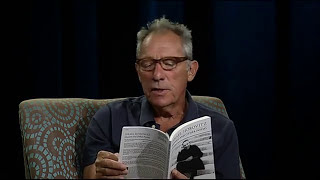
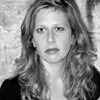




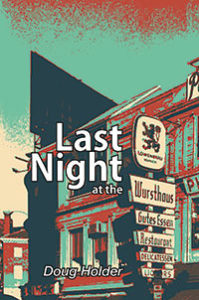


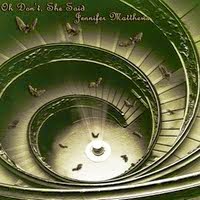
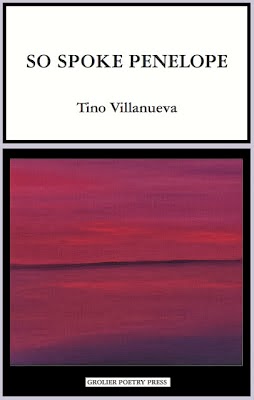
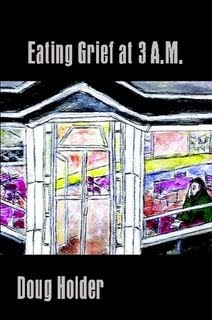
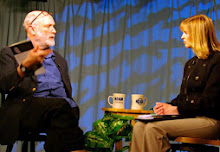
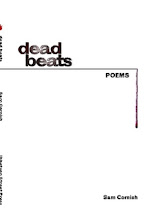







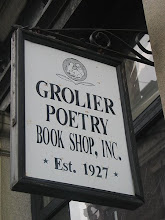
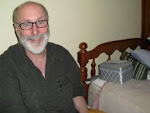

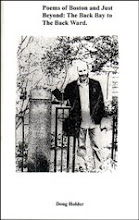
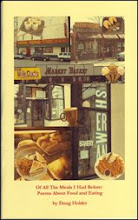




No comments:
Post a Comment